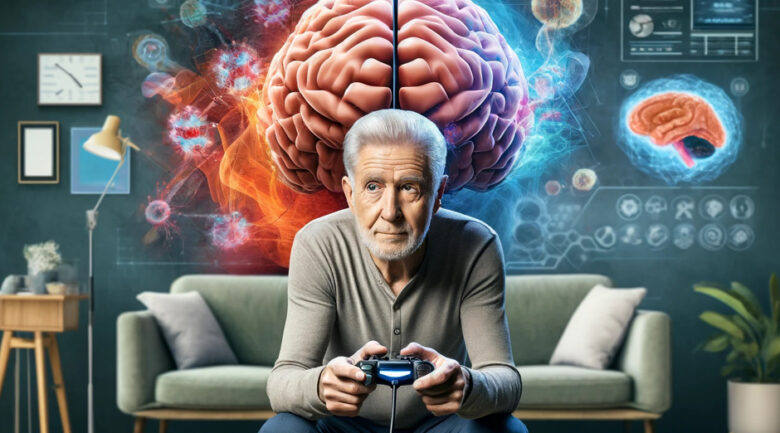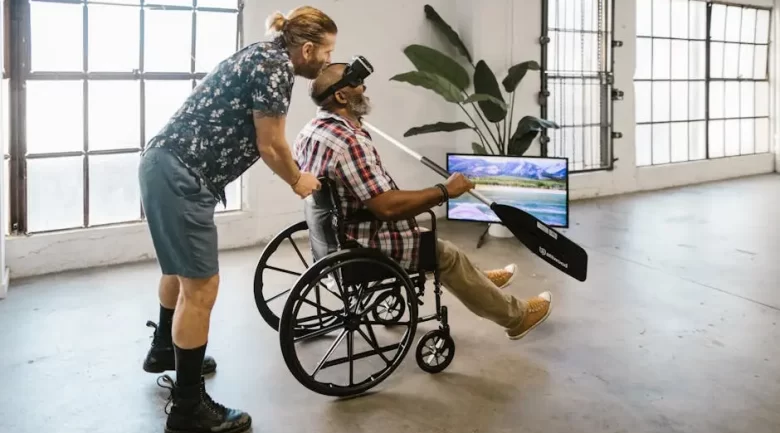Dementia care can often be challenging for caregivers, but utilizing Brain-Computer Interface (BCI) technology can make a significant difference. In this blog, we’ll explore some practical strategies to enhance the care-giving experience through BCI. From communication to improving quality of life, let’s dive into these innovative approaches.
1. Enhancing Communication with BCI Technology
Learn how BCI tools can help bridge the gap in communication for individuals with dementia, fostering better understanding. Effective communication can often feel like an uphill battle when caring for someone with dementia. Just imagine the frustration for both caregiver and patient when words fail. BCI technology provides a unique opportunity to facilitate this interaction by translating thought patterns into actions. Caregivers can utilize devices that interpret brain signals, allowing loved ones to express their needs and feelings more clearly.
In addition to aiding verbal communication, BCI systems can also promote non-verbal expressions. For example, individuals can learn to control devices that respond to their thoughts, enabling them to create art or play music. This doesn’t just improve interaction; it fosters a sense of identity and accomplishment. As caregivers, this means looking beyond spoken words and embracing the myriad of ways individuals communicate. BCI technology can truly transform these interactions.
2. Monitoring Cognitive Responses for Improved Care
Discover how caregivers can use BCI to monitor cognitive responses, enabling tailored support. One of the most powerful features of BCI technology is its ability to give insights into cognitive function. Caregivers can track the brain activity of individuals, identifying patterns that may indicate when someone is feeling confused or agitated. This data is invaluable—it allows caregivers to respond promptly, adjusting activities or environments to help mitigate discomfort.
Understanding cognitive responses can also guide caregivers in personalizing activities. For instance, if monitoring reveals that certain music or stimuli lead to positive responses, caregivers can incorporate these into daily routines. Not only does this improve engagement, but it also promotes a sense of normalcy and familiarity for individuals with dementia. Tailored support systems like this can enhance overall well-being and make a profound difference in daily interactions.
3. Creating a Safe Environment with BCI Systems
Explore how BCI systems can create safer living environments, reducing risks and enhancing comfort. Safety is a primary concern for caregivers, especially when supporting someone with dementia. BCI technology can play a key role in this aspect by integrating with smart home systems to monitor and control the living space. Imagine systems that alert caregivers if a loved one wanders beyond a designated area or if unusual patterns arise, such as inactivity or agitation.
Such systems not only ensure physical safety but can also cater to emotional security. For instance, BCI can learn the preferences of individuals, adjusting lighting, temperature, or even music according to their comfort levels. Creating a tailored safe space ensures individuals feel at home, easing anxieties that can accompany dementia. Ultimately, this kind of proactive approach helps caregivers maintain a conducive atmosphere for healing and support.
4. Utilizing BCI for Memory Enhancement
Find out how BCI can support memory recall and retention, aiding individuals in their daily lives. Memory loss is one of the hallmark symptoms of dementia, often leaving both patients and caregivers feeling frustrated. BCI technology can assist in memory enhancement through stimulating optimal brainwave patterns associated with memories. Through targeted exercises and feedback, these systems can help bolster cognitive skills, making daily life easier.
Imagine utilizing a BCI device that helps individuals remember names, faces, or even their daily schedules. It can serve as a reminder tool, prompting loved ones about activities or appointments they might typically forget. By making memories more accessible, BCI not only enhances independence but also enriches interpersonal connections, as individuals can engage meaningfully without the burden of remembering everything on their own.
5. Incorporating Interactive Activities with BCI
Engage loved ones through interactive activities powered by BCI to promote mental stimulation and joy. Keeping the mind active is essential for individuals with dementia, and BCI technologies offer innovative ways to do just that. From virtual reality experiences to brain games, these tools provide fun and engaging activities that can enhance cognitive function. Caregivers can design interactive sessions that appeal to the interests of their loved ones, promoting a sense of agency and enthusiasm.
Through playful interaction, caregivers can foster meaningful moments of connection. Imagine a loved one painting through a digital canvas controlled by their thoughts or navigating virtual tours of places they once visited. Such activities don’t simply entertain; they evoke emotions and memories, reinforcing a sense of identity amidst cognitive fluctuations. Embracing these innovations allows caregivers to better connect with those they care for while uplifting their spirits.
6. Facilitating Emotional Well-Being Using BCI
Learn how BCI technology can help monitor and improve emotional well-being for those with dementia. Recognizing the emotional states of someone with dementia can be challenging for caregivers. Fortunately, BCI can provide insights into mood and emotional responses, offering vital data that caregivers can use to alter their approach. For example, certain neural patterns may indicate anxiety or distress, allowing caregivers to intervene positively.
Moreover, by integrating BCI with therapy techniques such as mindfulness or cognitive behavioral strategies, caregivers can promote emotional healing. Utilizing BCI to identify moments when individuals feel calmer or more engaged empowers caregivers to replicate those conditions. This feedback loop can effectively create an emotionally supportive environment, enhancing quality of life and fostering resilience even amidst the trials of dementia.
7. Improving Daily Routines with BCI Insights
See how BCI can provide insights into daily routines, helping caregivers adjust plans for better care. A consistent routine can be incredibly beneficial for individuals with dementia, providing structure and reducing anxiety. However, adhering strictly to a schedule may not always work for everyone. BCI technology has the potential to adapt routines in real-time based on cognitive feedback, ensuring that activities align with the individual’s current state.
For instance, a caregiver might notice through BCI data that their loved one tends to be more alert in the early morning. By adjusting scheduling to accommodate more challenging tasks during those hours, caregivers can help maximize efficiency and engagement. By blending care with data-driven insights, caregivers can create flexible yet structured routines that cater to the needs of those they support.
8. Training Caregivers with BCI Awareness
Understand the importance of training caregivers on BCI usage for effective implementation in dementia care. While BCI technology presents myriad possibilities, it’s essential that caregivers are properly trained to leverage its full potential. This training should encompass both the operational aspects of the devices and understanding the data they provide. Equipping caregivers with this knowledge enables them to put BCI insights into practice, improving care strategies tailored to their loved ones.
Moreover, caregiver training fosters confidence and competence in using BCI tools. This is crucial as caregivers often face stressful situations where technology can either support or hinder. By encouraging ongoing education, caregivers can stay updated on advancements in BCI technology, ensuring they are offering the best care possible. This investment in training ultimately leads to better outcomes and reinforces the bond between caregiver and individual, cultivated through trust and understanding.
9. Promoting Independence Through BCI
Encourage independence in individuals with dementia by leveraging BCI technologies that support decision-making. One of the significant challenges in dementia care is maintaining a sense of autonomy for individuals. BCI offers exciting possibilities to support decision-making capabilities based on individual preferences and cognitive functioning. By implementing devices that gauge decision-making readiness, caregivers can empower loved ones to participate actively in their lives.
These technologies can help individuals express choices—what to wear, what to eat, or which activity to pursue. Feeling empowered to make decisions directly influences self-esteem and mental well-being. When caregivers facilitate opportunities for choice using BCI systems, they contribute to a more dignified living experience. Ultimately, fostering independence not only enhances the individual’s quality of life but also eases caregiver burden, creating a more harmonious environment.
10. Utilizing BCI Data for Personalized Care Plans
Discover the significance of using data collected from BCI to create personalized care plans tailored to individual needs. As caregivers, personalization is key to effective dementia care. BCI technology provides unique insights into the individual’s cognitive functions, preferences, and responses, allowing for care plans that cater specifically to their needs. This approach acknowledges that no two individuals are the same, and neither should their care.
By incorporating BCI data, caregivers can assess what works best for each person and adjust interventions accordingly. For instance, if monitoring indicates stress during particular activities, caregivers can modify the approach or timing, creating a more fortifying environment. This philosophy of personalized care enhances trust and improves engagement, ultimately leading to better outcomes in everyday life.
11. Building a Support Network with BCI Resources
Explore how BCI resources can help caregivers connect with support networks and communities focused on dementia care. Caregiving can often feel isolating, but with the right resources, caregivers can establish meaningful connections with others. The BCI community offers a wealth of information, tools, and support groups that enable caregivers to share their experiences and seek guidance. Engaging with others who share similar challenges can renew motivation and provide essential insights into caregiving strategies.
One of the great benefits of using BCI resources is the opportunity for collaboration. Caregivers can share data and experiences to create a richer understanding of dementia care. This mutual support not only nurtures camaraderie but also builds a robust knowledge base that can enhance care practices. As caregivers learn from one another, they can adapt their approaches, ensuring that every individual receives the compassionate care they deserve.
12. Evaluating the Efficacy of BCI Tools
Learn how to assess the effectiveness of various BCI tools in enhancing the caregiving experience and outcomes. As BCI technology expands, it becomes crucial for caregivers to evaluate the tools at their disposal critically. Not every tool will be suitable for every individual, and understanding the specific impacts of these devices can help guide decisions. By taking the time to review and assess BCI technologies, caregivers can invest in solutions that provide real, tangible benefits.
Caregivers should consider metrics like engagement levels, cognitive improvements, and emotional responses when evaluating the efficacy of BCI tools. Regular assessments can determine whether the technology is working for the individual or if adjustments are necessary. Embracing this evaluative mindset empowers caregivers to be proactive, ensuring they are continuously improving the care experience and meeting the unique needs of their loved ones.





